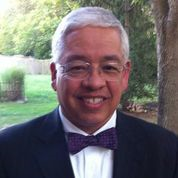Accounting for Hope – Edwin David Aponte
 When I told someone that I was asked to reflect on the future of theological education, I was asked, “Is there a future for theological education?” That is a reasonable question given that theological education in the United States is at a crossroads of relevancy and effectiveness to church and society. We are in a time of major cultural changes, demographic shifts, and competing visions.
When I told someone that I was asked to reflect on the future of theological education, I was asked, “Is there a future for theological education?” That is a reasonable question given that theological education in the United States is at a crossroads of relevancy and effectiveness to church and society. We are in a time of major cultural changes, demographic shifts, and competing visions.
Most theological education can be traced back to a model from the early 19th century and the short-lived cultural ascendancy of the historic Protestant mainline denominations of the 1950s and early 1960s. But huge social and cultural changes have taken place in which many Americans do not identify with any religion, let alone 1950s Protestantism. The Pew Research Center reports that one-fifth of the U.S. public – and a third of adults under 30 – are religiously unaffiliated, including more than 13 million self-described atheists and agnostics (nearly 6% of the U.S. public), as well as the so-called “Nones” roughly 33 million people who say they have no particular religious affiliation. Younger people who had some connection to church are leaving in droves, concurrent with generations who never had the experience of any faith community. But this doesn’t mean that there is a decline of spirituality as many in these same groups work for the common good drawing on their own concepts of spirituality and meaning.
In addition to shifts in spirituality and social involvement there are new models and experiences of learning. Computers and tablets are used in many schools. Prominent universities are experimenting with MOOCs (Massive Open Online Courses) offering free unlimited worldwide participation in the same course via lectures, videos, and interactive forums. Other types of online distance learning are common as people earn degrees or selectively choose from a buffet of short-term opportunities via the Internet.
People are exploring new ways to be church, whether it is called emergent, or missional, a combination, or something different all together. Various types of social media show that vibrant virtual communities are possible. There are worldwide congregations whose life is mostly online as they push the boundaries of time and place. Other congregations are intentionally multicultural across racial, ethnic, and class lines, something still rare in the United States. Increasingly it is recognized that the locus of Christianity shifts from the “West” to places like South America, Africa, and East Asia.
Some seminaries are only just beginning to get caught up with the digital revolution. Certain seminaries are accused of preparing graduates for a church and society of the past. Add to these challenges that many seminaries enrollments have declined since the 1990s, while budget deficits grow. In such a context what is the mission and vision of theological education? One passage of Scripture that helps my thinking is 1 Peter 3:15, “make your defense to anyone who demands from you an accounting for the hope that is in you” (NRSV). One mission of theological education for the present and the future is to help people called to ministry to articulate Christian hope for these times and places. Excellent seminaries of the future will need to embrace what always has been true, namely that people pursue theological education for a variety of reasons. Some come to theological education with hope well defined, and yet are still “surprised by joy” through deeper understandings of that hope. Others come as searcher and discover reasons for hope, meaning, and undreamt of avenues for service. Some are called to congregational ministry, but seminaries should acknowledge what God has affirmed that the church and the world also need excellent counselors, teachers, and those called to specialized ministries.
Future theological education will embrace gifts of time, space, and community to consider the hope of what we have experienced of God in Christ. Theological education can explore how that hope impacts our society and our life together as we realize we should work toward the common good. At our best in theological education we engage the traditions, but in ways that are relevant for this moment in time, as we deepen our emphasis on ministry and the formation of leaders who develop the contextual capacity to respond to shifting situations. As theological education produces excellent leaders for contextual ministry, seminaries will be more nimble, offering education in a multiple formats and not just for those pursuing degrees. Seminaries will be engaged in ongoing dialogue with the communities and contexts they serve.
Edwin David Aponte is Vice President for Academic Affairs, Dean of the Faculty, and Professor of Christianity and Culture at Christian Theological Seminary in Indianapolis, IN. He is a member of Whitewater Valley Presbytery and earned the PhD in religion and culture from Temple University. Aponte’s most recent book is ¡Santo! Varieties of Latino/a Spirituality (Orbis Books 2012). edaponte@cts.edu

